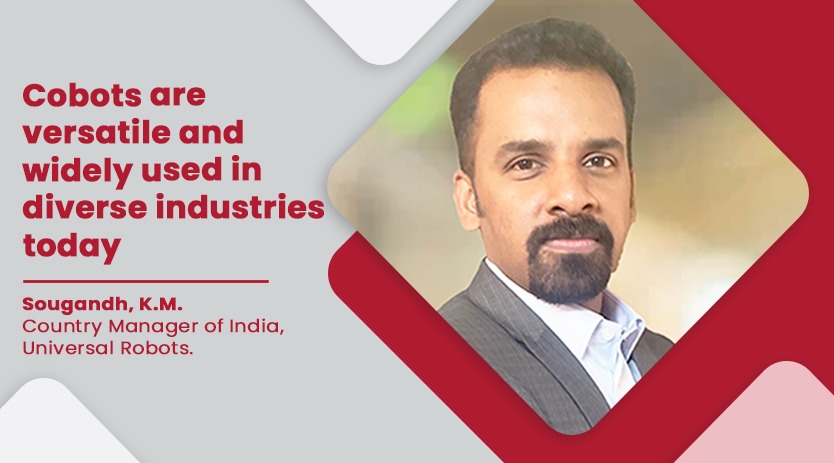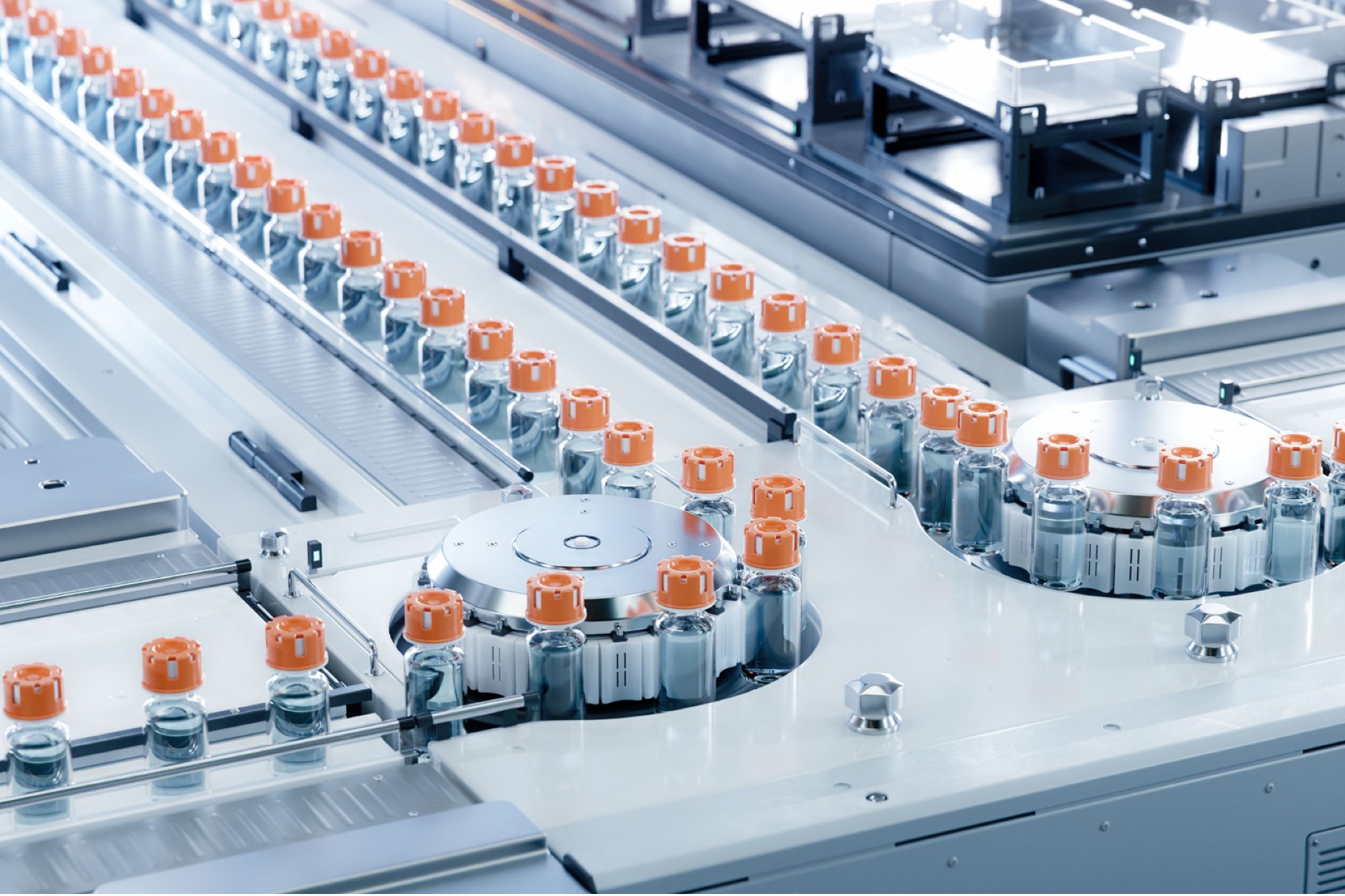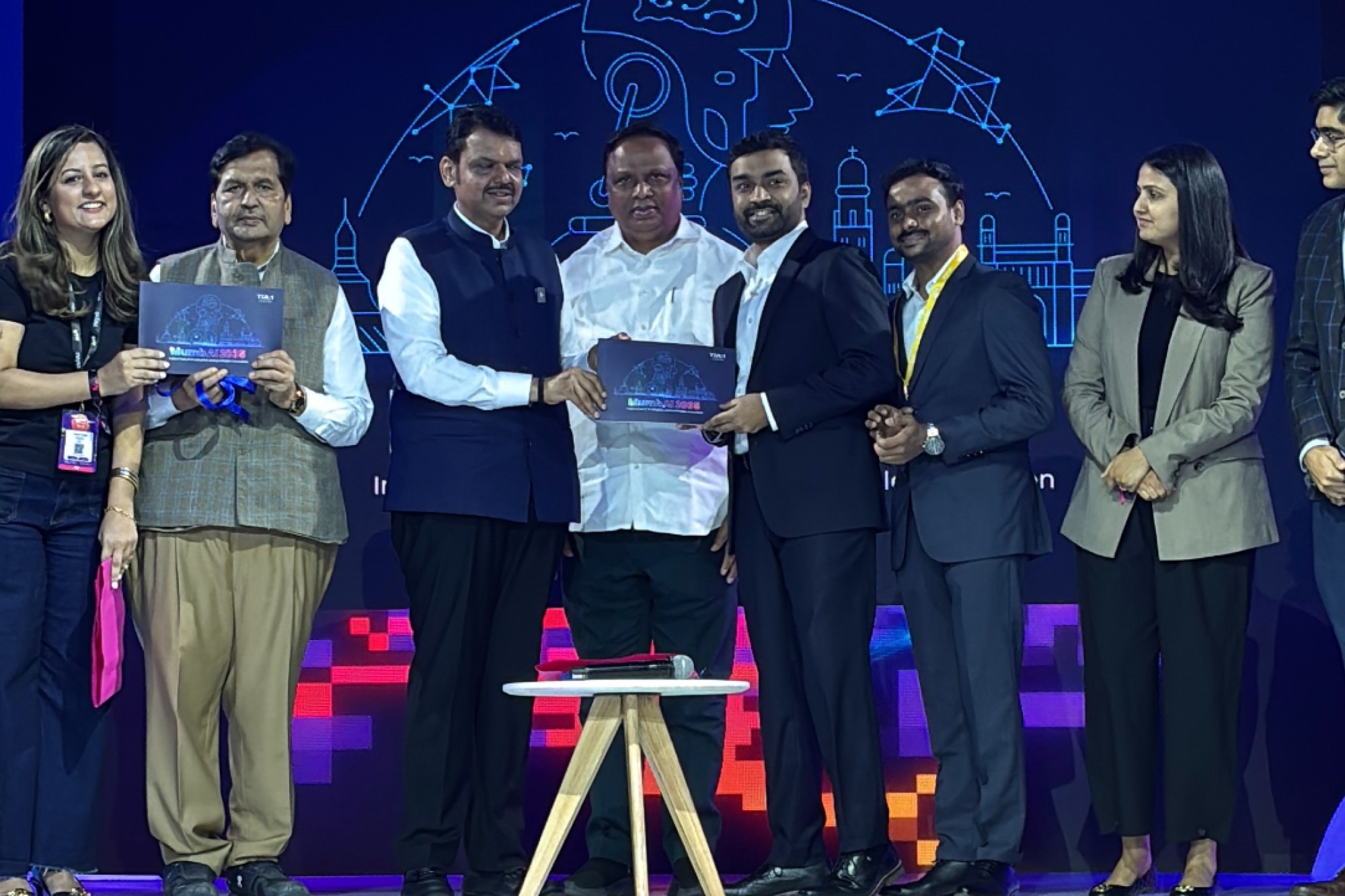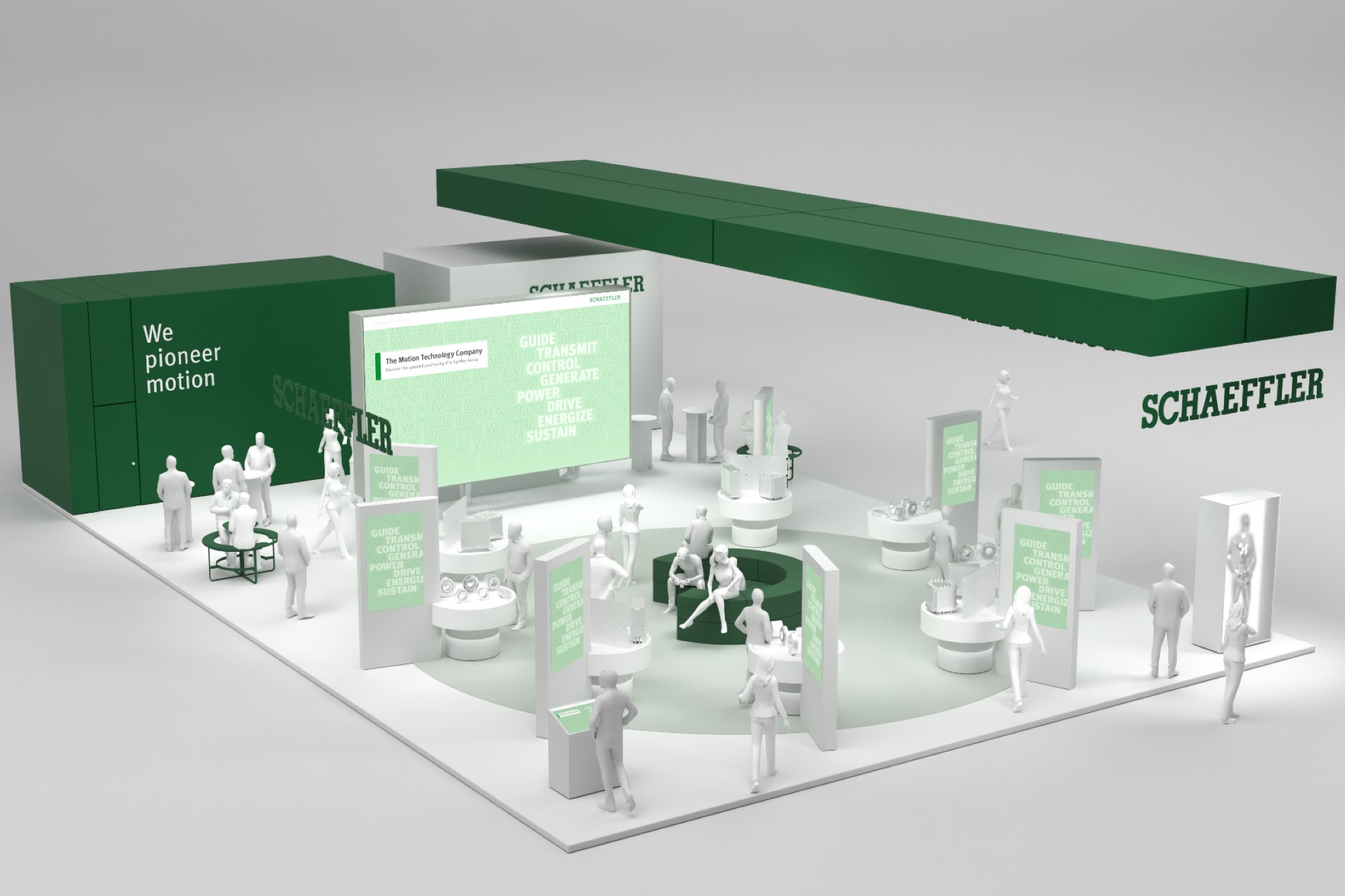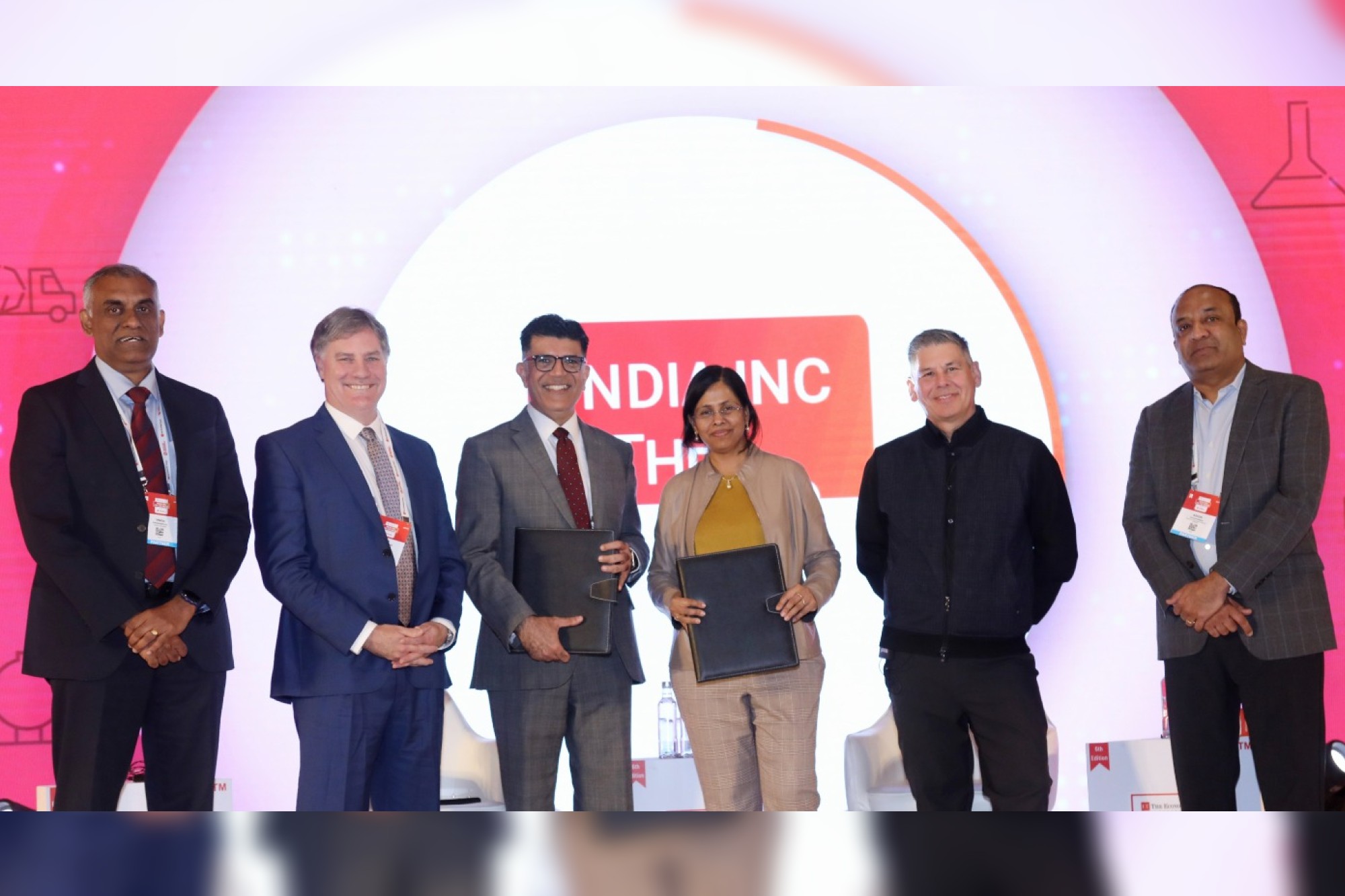Cobots are versatile and widely used in diverse industries today
By OEM Update Editorial November 1, 2023 12:35 pm IST
Sougandh, K.M., Country Manager of India, states Universal Robots’ mission is to make automation accessible to all. Its approach to automation and collaborative platform envisions a future where any company, regardless of location, can embrace automation.
How is the integration of technologies impacting manufacturing sustainability?
The environment has emerged as a prominent concern for businesses globally. In light of the ever-evolving technological advancements, industries increasingly prioritise sustainable objectives. The integration of technologies such as artificial intelligence, robots, and Industry 4.0 is substantially impacting the manufacturing sector. While traditional industrial robots play a role, collaborative robots (cobots) developed by UR are specifically designed to enhance productivity and efficiency in the manufacturing industry. The manufacturing industries have reaped multiple benefits by integrating these cutting-edge technologies such as:
Reduced Energy Consumption: Using AI and robots to optimise industrial processes may decrease energy usage. Cobots may be operated remotely, reducing trip expenses and maximising energy use. Cobot digitisation and effective programming can further cut production-related power use.
Waste reduction: Cobots excel in carrying out repetitive tasks with exceptional precision and quality control, thereby minimising the occurrence of waste. Moreover, cobots exhibit versatility and have a longer lifespan than industrial robots. They can automate diverse applications and easily adjust to evolving production processes. By lasting longer, cobots reduce the necessity for frequent machinery replacements, decreasing the overall utilisation of machines and a lower volume of discarded heavy industrial equipment.
Employee Well-being and Safety: Employee well-being is one of the most debated topics. As mentioned, cobots are specialised to perform repetitive tasks so that humans can contribute to more value-added tasks, contributing to employee’s physical well-being. They are safe to work alongside humans, promoting a healthy and safe work environment for employees.
In what ways robotics has transformed the face of manufacturing?
The manufacturing industry has transformed by advancing and integrating state-of-the-art technologies, particularly in robotics. Cobots have emerged as crucial contributors in addressing manufacturing challenges. Below are various ways in which cobots are impacting the manufacturing sector:
Flexibility: Cobots are designed to work alongside humans. They exhibit adaptability and agility in manufacturing processes as they can be easily programmed and reprogrammed for various tasks. This enables manufacturers to respond swiftly to changing demands and trends, fostering flexible production lines that save time and resources.
Worker safety and ergonomics: Cobots offer the advantage of safely working alongside human workers. Equipped with advanced sensors and safety features, they can detect human presence and avoid accidents. Additionally, cobots alleviate the physical strain and ergonomic issues associated with demanding or repetitive tasks, contributing to a healthier and more sustainable work environment.
Product customisation: Unlike traditional robots that occupy significant floor space and are limited to specific tasks, cobots are cost-effective, space-saving, and versatile. They are well-suited for FMCG (Fast Moving Consumer Goods) industries that rely on seasonal demand, changing consumer preferences, and dynamic environments. Cobots enable high-mix, low-volume production and can be easily deployed and redeployed to perform various tasks, ensuring a rapid return on investment.
Cost-effectiveness: Cobots generally incur lower costs and require less infrastructure investment than standard industrial robots. They can be quickly programmed without the need for extensive robotics expertise. Furthermore, cobots optimise resource utilisation, reduce waste, and eliminate duplicate efforts or errors, resulting in cost savings and improved overall operational efficiency.
Cobots are revolutionising the manufacturing sector by enhancing workforce development, flexibility, worker safety, productivity, scalability, and cost-effectiveness. They play a vital role in maintaining a competitive edge in the industry by promoting collaboration and adaptability to emerging trends.
In what manner is industrial automation transforming the outlook of the robotic market?
The market for industrial automation is evolving at a very fast pace. According to Research and Markets, the global industrial robotics market was $37,876 million in 2020 and is expected to reach $116,848.7 million by 2030, with a CAGR of 11.7 per cent from 2021 to 2030.
The industrial automation sector has undergone a profound transformation due to the integrating of emerging technologies such as AI, ML, IIoT, 5G, and more. Technological advancements have driven the evolution of industrial robots, leading to significant developments in the following areas.
Collaborative robots: They are specialised in performing dull, mundane, and repetitive tasks. Cobots are versatile, easy to use and compact. They are becoming more popular across sectors because of their capacity to support human employees in activities including palletising, welding, machine tending, assembly, and material handling.Machine learning: Recently, robotic performance has been improved by machine learning algorithms through ongoing learning and improvement. AI-powered robots enhance industrial automation’s productivity, effectiveness, and capacity for handling challenging jobs.
Mobile and autonomous robots: The robotics industry is witnessing the emergence of mobile and autonomous robots that can operate and navigate in dynamic environments independently, without human involvement. Mobile robots are utilised in logistics, warehousing, and material handling scenarios, whereas autonomous robots are deployed for inspection, maintenance, and surveillance tasks. These advanced robots are enhancing efficiency, minimising costs, and expanding the scope of automation across various industries.
Which robots are in great demand for various processes with arising needs?
As technology advances, the landscape of industrial robot adoption is transforming. Many robots are emerging, including cobots, mobile, and service robots. Cobots have gained significant popularity among these due to their versatility and suitability for various industrial processes. Cobots are compact, require minimal space, can be installed on the ceiling, offer flexibility, and greatly enhance efficiency and productivity in production units. One of the most significant used processes where cobots are used is:
Palletising: Palletising, or arranging goods on pallets, is essential to supply chain and logistical processes. Cobots have become important instruments in palletising applications, revolutionising the speed and adaptability of the procedure.
Cobots eliminate the necessity for physical barriers by using advanced sensors and safety features, ensuring a safe workspace. Their easy setup and straightforward programming enable efficient customisation for various palletising tasks. By automating repetitive operations, cobots enhance productivity by reducing cycle times.
Cobots eliminate the need for physical barriers by ensuring a safe working environment with cutting-edge sensors and safety features. Quick setup and simple programming allow for effective customisation for various palletising jobs. By automating routine operations, cobots increase productivity by reducing cycle times. They are also more affordable than typical industrial robots since they require less infrastructure and upkeep.
Machine tending: Loading and unloading workpieces onto machines, such as CNC machines or assembly lines, is called machine tending. Cobots in applications like machine tending provide versatility and flexibility to manage various machines and parts. Cobots may be swiftly deployed for machine tending chores and are simple to programme. Automating time-consuming and repetitive operations boost productivity by freeing workers to concentrate on more complex tasks. Cobots simplify the machine tending procedure, increase effectiveness, and raise industrial productivity.
Welding: Cobots have found extensive application in welding, which is a hazardous task requiring precision and efficiency. These tasks are ideally suited for cobots. Manual welding demands high dexterity and skilled human judgment, particularly for complex welds. However, the integration of automated welding technology is increasingly significant in meeting demand and overcoming the shortage of qualified welders in the industry.
What are your objectives for the year 2023?
UR’s mission is to make automation accessible by offering cost-effective, flexible, safe, and user-friendly collaborative robots that work harmoniously alongside humans in manufacturing settings. Through its approach to automation and collaborative platform, UR envisions a future where any company, regardless of location, can embrace automation. The objectives for the year 2023 are as follows.
Since its beginning, the company has concentrated on making automation easier for small and medium-sized enterprises. The company will re-orient its efforts in 2023 to attract more substantial clients, emphasising large businesses while continuing to make automation affordable for smaller businesses.
In 2023, UR will focus on leveraging cobots for welding, palletising, and machine tending applications. These areas offer extensive use cases for cobots and bring numerous benefits to organisations, such as enhanced productivity, reduced labour costs, increased efficiency and quality, and improved adaptability. By emphasising these applications, Universal Robots aims to achieve its goal of widespread automation.
UR emphasises delivering the utmost customer satisfaction and post-sale services, considering it a top priority. They serve as trusted advisors, committed to establishing enduring partnerships with their clients. Through a thorough understanding of each customer’s unique requirements and obstacles, UR leverages its extensive partner network, innovative technologies, and industry expertise to offer solutions that bring tangible value and sustained success. The company strives to streamline the purchasing process, implementing and utilising its automation solutions, ensuring a seamless customer experience. Universal Robots believes in ‘Our success lies in our customers’ success’.
Cookie Consent
We use cookies to personalize your experience. By continuing to visit this website you agree to our Terms & Conditions, Privacy Policy and Cookie Policy.



